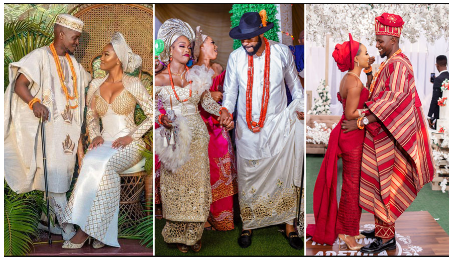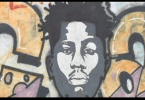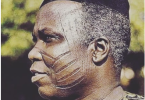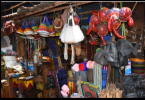Nigeria is a dynamic melting pot of 371 ethnic groups and well over 250 language dialects. The largest ethnic groups being the Hausa/Fulani (core North), Yoruba (southwest), and Igbo (southeast). The nation is also a secular society. The three largest religions (in terms of number of worshipers) are Islam, Christianity, and traditional/ancestral worship. Thus we can expect an assortment of traditional Nigerian wedding customs that are equally diverse and interesting. Nevertheless, certain wedding customs are common among most (if not all) ethnic groups in Nigeria.
In fact, Nigerian weddings are among the biggest and most sought-after social events anywhere across Africa – it often involves a whole community. Hence the term ‘Owanbe’ (the party bee – ‘Was at the party’). Hardly would any weekend pass without a number of wedding celebrations taking place here and there around town. Extended family members, friends, neighbors, and well-wishers troop there in droves – dressed to kill, to eat, and to have fun.
Typical Traditional Nigerian Weddings: What to Expect
Nigerian weddings are colorful and elaborate celebrations of love, unity, and ancient customs – be it the traditional, civil, or religious wedding. And quite often, each wedding ceremony is a combination of the traditional and civil (or religious) wedding – and traditional wedding rites come first.
Nigerian weddings often cover a span of several days, which usually climax on a weekend (between Friday and Sunday). They are often an opportunity to unite family and friends, proclaim blessings, and share gifts. Expect anything from a few to over a thousand guests, depending on the wedding arrangements.
Common Traditional Nigerian Wedding Customs You Should Know
We present to you a number of common traditional Nigerian wedding customs and rites, and what each of them symbolizes.
Breaking of Kola Nuts
The kola nut is a valued fruit used in virtually every traditional event in Nigeria – including traditional weddings. It is used for proclaiming blessings, and declaring the event open. Thereafter, it is broken in pieces and shared amongst all visitors or guests. And it may be accompanied by an alcoholic beverage (such as schnapps, gin, or palm wine).
The Dowry (or Bride Price)
The dowry or bride price is a collection of gifts offered by the groom’s family to the bride’s family. It goes by names such as ‘Eru Iyawo’ (Yoruba), ‘Rubu Dinar’ or ‘Kayan Zandar’ (Hausa); and ‘Ime Ego‘ (Igbo). It does not indicate that the bride is being sold off in any way. Rather, it symbolizes the groom’s ability to financially cater for his bride and future family. It is also an opportunity to procure blessings from the two families.
The bride price must be presented before the commencement of the wedding. And it would normally have been negotiated and agreed upon by both families ahead of time. It typically includes cash, foodstuff, clothing, cooking utensils, household items, drinks, and sometimes live animals.
Family Attire (aka ‘Aso Ebi’)
‘Aso Ebi’ or family Attire is a chosen cloth material, or uniform colour scheme worn by a group of family members (or even well-wishers). Thus tradition was initially popular amongst the Yoruba people. But it is now practically a national culture at every traditional event – including traditional Nigerian weddings. Each side of the family (whether the groom, bride, or bridal train) chooses a common cloth material or colour to wear. This would distinguish them from other groups.
Money Rain: The Spraying of Currency Notes
One of the sizzling highlights of traditional Nigerian weddings is the moment when currency notes are ‘sprayed’ all over the couple. This normally takes place during the wedding reception, while the couple dances to music (supplied by a live band or DJ). They are not expected to pick the money; but members of the bridal train can help them to gather the cash. It is often one of the first gifts given to the couple, before other tangible ones arrive.
Assorted Food and Drinks
At every Nigerian wedding, it is customary to serve food, drinks, and other refreshment to guests. It is an important aspect of party entertainment that accompanies music and dance. It is a form of appreciation for attending the event; and as such, no one is expected to leave empty-handed or hungry.
A typical feature of Nigerian weddings is an assortment of foods. It often features jollof rice (with accompaniments), ‘swallow’ (semi-solid) foods, and a number of rich stews/soups. Appetizers may be served in the form of ‘small chops’ (snacks such as samosa, sausage and fish rolls, meatpie, meat, fish, etc.), sweets, and fruits.
Party Souvenirs
It is also customary for the couple to offer anything from simple to expensive branded souvenirs to guests before they leave. They are usually branded with pictures of the couple and the wedding date, as a reminder of the event. Typical souvenirs include branded cups, hand fans, plates, clocks, handkerchiefs, keyholders, and a host of other items.
Elaborate and Colorful Wedding Attires
Traditional wedding attires in Nigeria vary depending on the tribe. There is also the tradition of wearing more than one set of attire. That is, there could be a change of attire while the wedding ceremony progresses.
However, Yoruba women are typically decked in colorful ‘Iro’ and ‘Buba’ (wrapper and top), with a veil and shoulder scarf. An elaborate head tie or ‘Gele’ completes the ensemble. While the men are typically decked in flowing kaftan garment (‘Agbada’), cap and trousers. They often use materials such as lace, Aso Oke, Adire, Ankara, and possibly suede. Traditional beads, hand fans, and horsewhips are common accessories.
Igbo couples will change their attire once they are pronounced husband and wife. In any case, women typically wear a single or double wrapper of George or lace material, with a coral crown and beads. The men will typically wear the ‘Isi Agu’ (Lion head) fabric – a cloth material with lion head patterns all over. It may come with white, red, black, or blue background colour. A noble cap (and an optional walking stick) completes the ensemble.
Hausa men and women typically make use of Damask, Ankara, and other suitable fabrics in different colours and embroidered patterns. Skirt or wrapper and top is common amongst women, complete with a veil and head tie. In alternative, the iconic ‘boubou’ or native gown is also fairly common. They equally indulge in metal and beaded jewelry (like bangles, earrings, necklaces, and the like). While the men put on their flowing gown or ‘Babanriga’ ( similar to Agbada) and trousers.
Some Peculiar Traditional Nigerian Wedding Customs
Yoruba Weddings
A typical Yoruba wedding or ‘Igbeyawo’ is often hosted by 2 female Masters of Ceremony called ‘Alaga’. They are skilled hype women – persuasive and lively members of the couple’s families. Nowadays, professional MCs are employed to do the job. The MC(s) will often have drummers who emphasize their words and actions with matching beats.
The groom and his male family members (and groomsmen) must also prostrate fully with their chest to the ground (‘Idobale’). This is a way of showing respect to, and seeking permission from the bride’s family. The bride and her bridal train are then allowed to come in, all dressed in matching attire.
While the family heads proclaim blessings on the couple, the groom also places his hands on the shoulders of his bride, and they kneel to receive blessings. The couple are also made to taste four items with sweet, bitter, sour, and spicy tastes (representing the possible experiences of their married life). Finally, the bride places a hat on the groom’s head; and the groom reciprocates by physically lifting up his bride. They are then pronounced man and wife.
Igbo Weddings
An Igbo man declares his intention to marry a woman by going with his male relatives to ‘knock’ on the bride’s family’s door (called ‘Ikuaka’). However, the man’s father (or an elder male relative) will do that announcement. And they must do so bearing kola nuts and alcoholic spirits in the hand. Following this, the dowry will then be paid.
The wedding proper or ‘Igba Nkwu’ takes place thereafter. This involves the bride searching for her future husband amongst several men in the crowd. All the while, she bears a cup of palm wine in her hand and dances through the crowd. On finding him, she then offers the palm wine to her groom to drink (and the groom gives her some of the palm wine as well). They are thereafter proclaimed husband and wife. They proceed to change outfits and join in the celebration that follows.
Hausa Weddings
Hausa weddings are quite elaborate as well. It begins with the payment of the agreed bride price to the bride’s family. Then the wedding day or ‘fatihah’ would follow. At the fatihah, only the family representatives (and not the couple) are allowed to exchange marriage vows before the religious priest.
Then comes the ‘Wuni’ or ‘Kamu’, a fun gathering of the bride and her friends, during which they apply henna tattoos on each other’s hands. The groom’s family will then approach the bride’s ladies to playfully negotiate for her release (‘Kamun Amariya’). From there, the bride will be accompanied to her matrimonial home (‘Kai Amariya’). .
Traditional Wedding Customs in other Nigerian Tribes
There are also some other curious wedding customs applicable to other ethnic groups in Nigeria, such as the following:
- Tiv: The ‘Kwase ku’ ceremony among the Tiv people involves the groom bringing a pot of wine to the bride’s family. The two families negotiate the bride price, then the couple celebrates their union in a traditional dance.
- Nupe: A Nupe groom engages in a mock battle with his male colleagues beside the bride’s house. This is a demonstration of the groom’s commitment to protecting his bride. This practice is called ‘Kuchiko’.
- Efik: An Efik bride is kept in seclusion for some weeks prior to the wedding. During this period, she will be pampered, well fed, massaged with skin oils, and given many gifts. This practice is called ‘Mbobo’.
- Ibibio: In Ibibio tradition, the bride’s family must carefully investigate the groom’s family background to know if they possess good character. This is called ‘Nkuho’. Once satisfied, the wedding may proceed thereafter.
- Idoma: Before an Idoma wedding takes place, the bride performs what is called ‘Ai Ije’. She is required to go to the groom’s house to complete some domestic chores. It will allow the groom’s family to assess the bride and determine if she can handle family roles.
- Ijaw: In the Ijaw community, the groom’s family carries a fairly large pot of soup to the bride’s family. This symbolizes the groom’s ability to take care of his bride. The practice is called ‘Ikeni’.
- Isoko: An Isoko groom is given a tuber of yam by the bride’s family to peel and cook. The practice is called ‘Udi Efe’.This symbolizes his capacity to cater for his future family.
- Ogoni: An Ogoni groom is required to carry his bride on his back and dance around the village. This is called ‘Nkumbara’. This is a demonstration of their mutual love and happiness.
- Ebira: The Ebira people practice a marriage tradition called ‘Evo’. The groom is presented with a number of soup bowls. Thus, he must choose the right one prepared by his bride. This is a test of their compatibility.
- Igala: Before the wedding, the bride’s family will execute a fake kidnapping of the bride. Thus, the groom and his companions are required to go and ‘save’ her. This.is a test of his commitment to protect the bride in their future marriage. This practice is called ‘Igbegwu’.
- Kanuri: A Kanuri groom is required to carry out the ‘Koshe Zance‘ before the real wedding. In this tradition, he must demonstrate his horse riding skills to the bride’s family (as a symbol of his bravery and strength).







